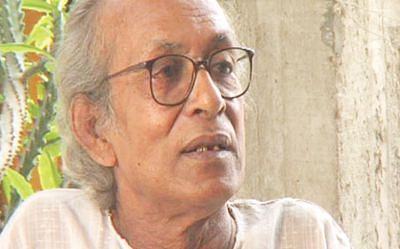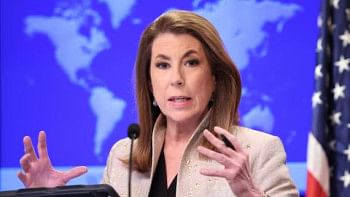In remembrance of Mahmudul Haque

Mahmudul Haque
July 21 marked the 4th death anniversary of writer Mahmudul Haque. Different organisations and individuals, including Bangla Academy, Bangladesh Lekhok Shibir, Bangladesh Writers Association and National Poetry Council organised a discussion on his life and contributions.
Haque was a gifted writer. He was not exactly what is considered “popular” in the contemporary literary scene, but most aware readers were well-acquainted with his brilliant writing. He wrote, in fact, a few novels. His books could be finished at one go, as the essence is usually clear and easily comprehensible. The imagery he weaved was practically etched into the minds of his readers.
The most important aspect of all Haque's novels is his passion -- he never narrated a story just for the sake of storytelling. He analysed the characters elaborately and revealed their inter-relationships. One trait that set Haque's novels apart is their slenderness. The thin volume, however, should not be considered a disadvantage, as it takes remarkable restraint and skills for a writer to express himself in limited words.
The subjects of Haque's novels are pragmatic and relevant. His inimitability lay in simplified articulation. He disliked complicated language. That however, does not mean that Haque's language was mundane and uninteresting; rather it was marked with subtlety and remarkable savour.
Mahmudul Haque first emerged as a short story writer in the mid-1960s, when the then East Pakistan (now Bangladesh) produced a number of outstanding poets, novelists and writers like Mahadev Saha, Shahid Kadri, Rafiq Azad, Belal Chowdhury and Rabiul Hussain. Haque's first novel came out in 1973. Since then -- after long pauses -- a total of six novels were authored by him: “Anur Pathshala”, “Nirapod Tandra”, “Jibon Amar Bon”, “Matir Jahaj”, “Kalo Baraf” and “Khelaghar”.

 For all latest news, follow The Daily Star's Google News channel.
For all latest news, follow The Daily Star's Google News channel. 



Comments